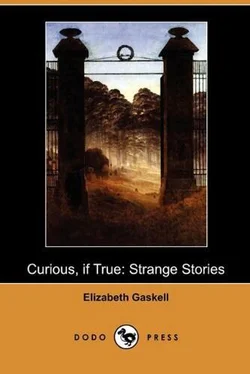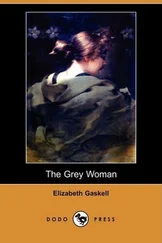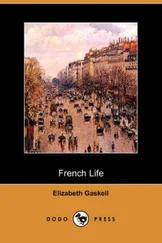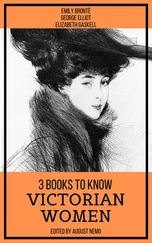"But have been sorry for it since," put in the other lady.
"Since we have married princes," continued the same lady, with an arch smile that had nothing of unkindness in it, "for we both have married far above our original stations in life; we are both unpunctual in our habits, and, in consequence of this failing of ours, we have both had to suffer mortification and pain."
"And both are charming," said a whisper close behind me. "My lord the marquis, say it—say, 'And both are charming. "
"And both are charming," was spoken aloud by another voice. I turned, and saw the wily cat-like chasseur, prompting his master to make civil speeches.
The ladies bowed with that kind of haughty acknowledgment which shows that compliments from such a source are distasteful. But our trio of conversation was broken up, and I was sorry for it. The marquis looked as if he had been stirred up to make that one speech, and hoped that he would not be expected to say more; while behind him stood the chasseur, half impertinent and half servile in his ways and attitudes. The ladies, who were real ladies, seemed to be sorry for the awkwardness of the marquis, and addressed some trifling questions to him, adapting themselves to the subjects on which he could have no trouble in answering. The chasseur, meanwhile, was talking to himself in a growling tone of voice. I had fallen a little into the background at this interruption in a conversation which promised to be so pleasant, and I could not help hearing his words.
"Really, De Carabas grows more stupid every day. I have a great mind to throw off his boots, and leave him to his fate. I was intended for a court, and to a court I will go, and make my own fortune as I have made his. The emperor will appreciate my talents."
And such are the habits of the French, or such his forgetfulness of good manners in his anger, that he spat right and left on the parquetted floor.
Just then a very ugly, very pleasant-looking man, came towards the two ladies to whom I had lately been speaking, leading up to them a delicate, fair woman, dressed all in the softest white, as if she were vouée au blanc . I do not think there was a bit of colour about her. I thought I heard her making, as she came along, a little noise of pleasure, not exactly like the singing of a tea-kettle, nor yet like the cooing of a dove, but reminding me of each sound.
"Madame de Mioumiou was anxious to see you," said he, addressing the lady with the roses, "so I have brought her across to give you a pleasure!" What an honest, good face! but oh! how ugly! And yet I liked his ugliness better than most persons' beauty. There was a look of pathetic acknowledgment of his ugliness, and a deprecation of your too hasty judgment, in his countenance that was positively winning. The soft, white lady kept glancing at my neighbour the chasseur, as if they had had some former acquaintance, which puzzled me very much, as they were of such different rank. However, their nerves were evidently strung to the same tune, for at a sound behind the tapestry, which was more like the scuttering of rats and mice than anything else, both Madame de Mioumiou and the chasseur started with the most eager look of anxiety on their countenances, and by their restless movements—madame's panting, and the fiery dilation of his eyes—one might see that commonplace sounds affected them both in a manner very different to the rest of the company. The ugly husband of the lovely lady with the roses now addressed himself to me.
"We are much disappointed," he said, "in finding that monsieur is not accompanied by his countryman—le grand Jean d'Angleterre; I cannot pronounce his name rightly" — and he looked at me to help him out.
"Le grand Jean d'Angleterre!" now who was le grand Jean d'Angleterre? John Bull? John Russell? John Bright?
"Jean—Jean" — continued the gentleman, seeing my embarrassment. "Ah, these terrible English names—'Jean de Géanquilleur! "
I was as wise as ever. And yet the name struck me as familiar, but slightly disguised. I repeated it to myself. It was mighty like John the Giant-killer, only his friends always call that worthy "Jack." I said the name aloud.
"Ah, that is it!" said he. "But why has he not accompanied you to our little reunion to-night?"
I had been rather puzzled once or twice before, but this serious question added considerably to my perplexity. Jack the Giant-killer had once, it is true, been rather an intimate friend of mine, as far as (printer's) ink and paper can keep up a friendship, but I had not heard his name mentioned for years; and for aught I knew he lay enchanted with King Arthur's knights, who lie entranced until the blast of the trumpets of four mighty kings shall call them to help at England's need. But the question had been asked in serious earnest by that gentleman, whom I more wished to think well of me than I did any other person in the room. So I answered respectfully that it was long since I had heard anything of my countryman; but that I was sure it would have given him as much pleasure as it was doing myself to have been present at such an agreeable gathering of friends. He bowed, and then the lame lady took up the word.
"To-night is the night when, of all the year, this great old forest surrounding the castle is said to be haunted by the phantom of a little peasant girl who once lived hereabouts; the tradition is that she was devoured by a wolf. In former days I have seen her on this night out of yonder window at the end of the gallery. Will you, ma belle, take monsieur to see the view outside by the moonlight (you may possibly see the phantom-child); and leave me to a little tête-à-tête with your husband?"
With a gentle movement the lady with the roses complied with the other's request, and we went to a great window, looking down on the forest, in which I had lost my way. The tops of the far-spreading and leafy trees lay motionless beneath us in that pale, wan light, which shows objects almost as distinct in form, though not in colour, as by day. We looked down on the countless avenues, which seemed to converge from all quarters to the great old castle; and suddenly across one, quite near to us, there passed the figure of a little girl, with the «capuchon» on, that takes the place of a peasant girl's bonnet in France. She had a basket on one arm, and by her, on the side to which her head was turned, there went a wolf. I could almost have said it was licking her hand, as if in penitent love, if either penitence or love had ever been a quality of wolves, — but though not of living, perhaps it may be of phantom wolves.
"There, we have seen her!" exclaimed my beautiful companion. "Though so long dead, her simple story of household goodness and trustful simplicity still lingers in the hearts of all who have ever heard of her; and the country-people about here say that seeing that phantom-child on this anniversary brings good luck for the year. Let us hope that we shall share in the traditionary good fortune. Ah! here is Madame de Retz—she retains the name of her first husband, you know, as he was of higher rank than the present." We were joined by our hostess.
"If monsieur is fond of the beauties of nature and art," said she, perceiving that I had been looking at the view from the great window, "he will perhaps take pleasure in seeing the picture." Here she sighed, with a little affectation of grief. "You know the picture I allude to," addressing my companion, who bowed assent, and smiled a little maliciously, as I followed the lead of madame.
I went after her to the other end of the saloon, noting by the way with what keen curiosity she caught up what was passing either in word or action on each side of her. When we stood opposite to the end wall, I perceived a full-length picture of a handsome, peculiar-looking man, with—in spite of his good looks—a very fierce and scowling expression. My hostess clasped her hands together as her arms hung down in front, and sighed once more. Then, half in soliloquy, she said—
Читать дальше












